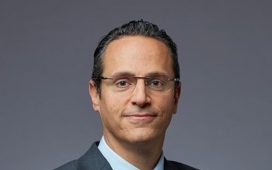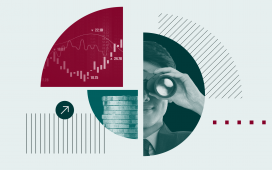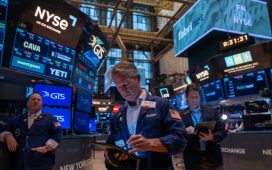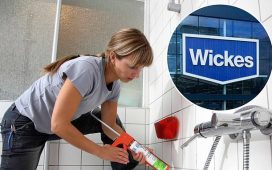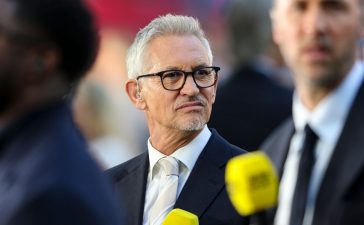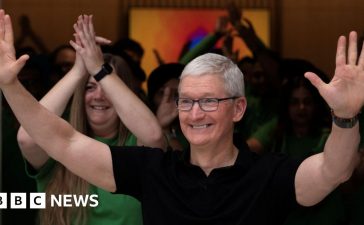
Samir Arora: We are not going to talk less about China or at least China relative to India as if there are only two countries in the world to invest in and one is at the cost of the other. I was saying all along that even if China did well, it is not at the expense of India in a slightly longer, maybe even one week, forget about one month or two months, because nobody has only these two investments. Even emerging market funds will have maybe 50% in non-China, non-India and therefore, there is enough money in the rest of the portfolio to take profits from or cut losses from.
It can be done in many other markets. India is a secular story. China was and maybe is a value trade on which somebody may be underweight, overweight and can add. But it was being viewed as if there is no other source of money, every other market is up, India is down because China is doing well. That was a bit too much, but fortunately that part is over. Now the market can focus on Iran and Israel or maybe talk about the US election. Every day there will be a new event and it will not matter in the end.
Markets were looking for a reason to correct and the trigger could be China, or Middle East; it could be anything in the world, but this correction was overdue?
Samir Arora: Correct. It was a good connection, but it was not a mind-blowingly bad correction. So it is okay. At worst, NAVs were down 4%, but now they are down 2% courtesy yesterday. So, it is okay, what is the big deal now?What has been your portfolio strategy? Have you changed any orientation of your portfolio based on the fact that there are too many moving parts suddenly in the world?
Samir Arora: No, in the last four-five days, at least in my long short fund, I have done nothing. No extra long, no extra short, nothing. My bet was that this was a short term thing. There were two-three things acting together during the same time, the higher STT, the new rules on trading, whatever, on option trading.
In addition, this rule about Rs 25,000 crore if you are a bigger FII, then you have to either cut down your size or have 100% disclosure of end beneficiaries, plus this China thing happened together. So, who knows what was exactly responsible for this very aggressive selling that happened. We now find that even yesterday was a good sale, but this is what happens. It is not that the amount of buying has to be much more, but the market has to sense that this is irrelevant.
In the end, the number yesterday was still quite big, Rs 5,000 crore, but that was good that the market went up with Rs 5,000 crore selling because that is a little better signal to the seller, to the FII, to the trader, hedge fund guy, that this market is going up without you and therefore you might as well not go.
What is your assessment of the earning season? The Q1 numbers were not great. Q2 could be blamed on elections, the heatwave, and a variety of factors. Do you think we are in for a disappointing result yet again and that, in a sense, could be a challenge?
Samir Arora: But there will be new reasons. It will be monsoon, it will be rains. Previously, it was summer. The results are not great, but for some companies they are okay to good and the sectors that are not good are otherwise well. Last quarter, although the aggregate numbers were not good, if you took out the oil and gas guys, it was okay. There was 13-14% growth, but it visually looked like 5-6% growth because of the big losses in that quarter. It might be some other sector, but generally speaking, financials will have good results and IT will have bottomed out, which means they can say that we see better growth, we see better discretionary growth, we see some BFSI growth, something or the other.
For consumers, the story is that because there is monsoon, the rural economy will do better. But those stocks have already gone up a lot. There will be more confusion whether to look at the results or look at these prospects of better things to follow, only because these numbers are so low, that instead of 4-5%, you grow 8%. It is more interesting to do this new consumer, the Zomato kind of consumer, at least you grow 20%, 30%, 40%,.
Is it time to look at some of these new interesting growth areas, kind of stocks or the traditional ones like the PSU pack which has corrected a bit or the financials for that matter, where would you say the tilt should be right now with respect to investing?
Samir Arora: When we get new money, we broadly try and find everything, but in the past, as in the last two-three months, that money has gone into IT because for two years, starting from June 2022, and in the last quarter, we became nervous about PSUs and other government-related stocks after the election results and Budget and generally no reinforcement in the Budget.
We sold off a few PSUs, including railway PSUs and a little bit of defence PSUs and that money was put into IT. Today our IT, like my offshore fund, will be maybe 12%, 13% or 13%, 14%, which used to be maybe 3% for the previous two years, so that is where the last big money has gone. On the margin, you always find something new happening here or there. But in terms of big sector shifts, this is where it has happened in the last, say, two months, three months.
You talked about the confusion in the consumption space and one of the confusions is regarding the auto sector because on one hand there are headlines talking about record high inventory, festive sales not being that strong, but it is one area everybody is positive about in the medium term and with the Hyundai IPO coming in, there is more interest back in that space. What is your take?
Samir Arora: There is no bullishness in this story. It is just a story created by the Indian public for whatever reason. Because there are 8 or 10 global listed auto companies and you can see what has happened to them in the last three months, six months. Every one of them has warned.
One of our bigger companies in India is basically 50-60% exposed to the same market. How can it be that nine out of nine companies warn? Our company does not warn but says that we will close down the plant because there is too much inventory, but in the long run, we are bullish. If nine of those guys in their market are not bullish, why we are bullish about one, our company, I do not know. Overall, I think that auto is one of the worst sectors to invest in. And I think that this new IPO will most probably on listing will be plus-minus par, let us see.
Is the view same for even two-wheelers or do you see some sort of a better scenario for at least two wheelers?
Samir Arora: Two-wheelers are a little bit different. We do not have it, but we are not aggressively negative in our minds or in our portfolio. Reason being that in actually auto, that is four-wheeler is actually a global sector and those companies land up in India also, you can protect and put duties and do hundreds of things, but in your mind, we know that this car, this company product is much worse than another product, although not available in India, but then you do not feel like giving a double, triple multiple of other companies.
In two-wheelers, the benchmarks are not there and the cost of this disruption in terms of R&D and all is not as high as in four-wheelers where there is a global race and the investments are of a much bigger scale than any poor Indian company can handle. The EV budget of Volkswagen right now will be something like $200 billion over five years. I do not know where we are playing on that scale other than saying put duty, put duty, protect. Therefore, two-wheelers are a bit different and a bit local. But four-wheeler is a global thing and we cannot just hide in India or with Indian listings.

